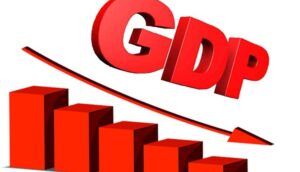
On July 1, the “Register of Destruction” is launched in Ukraine. With its help, homeowners whose houses and apartments were damaged as a result of hostilities and enemy shelling will be able to apply for compensation using the Diya application.
At the same time, the question of what the restored houses of Ukrainians will be like, taking into account the new realities and requirements for the housing stock after the war, remains no less important. The Open4business portal discussed these issues with Igor Stakovichenko, an expert in the field of construction and real estate.
“The introduction of the “Register of Destruction” will greatly simplify the procedure for compensating for damages for affected citizens. In fact, such a registry will bring together all the data on the destruction in the country. This will be very useful both for the state of Ukraine and for individual citizens when receiving compensation from the aggressor through international legal institutions,” the expert noted.
As for the new technologies that will be used in the construction of housing, here Stakovichenko recommends first of all to focus on the needs of society.
“What most people want from a new home, whose homes have been destroyed by the war, is reliability and security. The presence of equipped bomb shelters, convenient evacuation routes, autonomy – these are the criteria without which it is difficult to imagine post-war architecture,” Igor Stakovichenko stressed.
In his opinion, a good option would be the restoration and development of numerous recreational areas, some of which were abandoned even before the war. Stakovichenko believes that many Soviet-built sanatoriums and boarding houses, which have been practically not used for all the years of independence, can become a good platform for building eco-friendly settlements with autonomous service, since most of the communications have already been connected to them.
“Environmental friendliness and high technologies during construction will also become the hallmark of post-war architecture in Ukraine. Projects such as “zero energy houses”, or even “mini-power houses”, which are now being widely implemented in the EU, will also be popular after the war,” the expert added.
At the same time, Igor Stakovichenko sees no special prospects for aggressive development in the central areas of large cities, which was practiced before the war.
“Multi-apartment residential complexes in large cities will certainly continue to be built, but whether there is a buyer for such housing is already a question. I think many have already revised or will reconsider their views on comfortable housing as a result of the war,” the expert concluded.
CONSTRUCTION, EXPERT, FINANCY, IGOR STAKOVYCHENKO, MARKETS, REAL ESTATE, TECHNOLOGY, СТАКОВИЧЕНКО

The post-war reconstruction of Ukraine should be coordinated by an umbrella structure, including both governmental and non-governmental actors, in order to maximize synergy and efficiency, the Center for Economic Recovery (CEV), operating within the Council for Economic Development under the Cabinet of Ministers, made such a recommendation.
“Determine the responsible body for coordinating (not managing) the recovery process and establish unified coordination mechanisms that will prevent the ineffectiveness of parallel management,” says the CEV report, prepared at the request of the Organizing Committee of the Ukrainian Conference on Recovery, which will be held in Lugano on July 4-5.
The authors of the report point out that thanks to the success of the decentralization program, public administration reform and digitalization of public services, the Ukrainian public administration system is better prepared for the post-war recovery, but there is still a shortage of qualified managers, especially in the regions.
In the opinion of the CEV, the government agencies of Ukraine should be able to effectively and quickly implement the Recovery Plan without excessive involvement or external support from international organizations or local NGOs.
“Thus, Ukrainian public administration must become transparent, citizen-centered, inclusive and fully capable of providing effective governance,” the report emphasizes.
For this, according to the document, a reform of the anti-corruption system and the rule of law (including the cleaning of the High Council of Justice and transparent selection to the High Qualifications Commission of Judges), parliamentary control over the implementation of the Recovery Plan of Ukraine, building the capacity of local government, digitization and automation of the recovery process are necessary ( including e-contracts, reporting, fundraising, etc.).
In addition to the architecture of recovery, the CEV also offers its views on four other priority themes, in its opinion: infrastructural, economic, social recovery and environmental recovery.
In particular, according to experts, when restoring infrastructure, it is worth proceeding from current needs, comply with the digital and green transitions, and fit into integrated territorial plans and master plans of cities.
The CEV also proposes to focus on the development of industrial parks, resume privatization and create a network of business support centers.
With regard to logistics, the report proposes to expand the railway connection with the European gauge, develop ports on the Danube and river links with Europe, reconstruct or build 5-7 airports.
According to experts, the basis for economic recovery will be the preservation of macroeconomic stability, the expansion of economic freedoms, European integration and access to European markets.
The report also highlights the need to ensure access to finance, including through public assistance: wartime subsidies, loan guarantees and interest rate cuts, as well as mortgage coverage, low-risk SME lending.
It is also planned to develop the financial market by attracting venture capital, alternative financing, creating a fund of funds and restarting the capital market with a capital amnesty, pension reform and the medical insurance system.

Turkish Vice President Fuat Oktay announced plans to hold a trilateral Turkey-Turkmenistan-Azerbaijan summit.
“Noting that (Turkish President Recep Tayyip) Erdogan invited Turkmen leader Serdar Berdimuhamedov to Turkey, Oktay said that a trilateral Turkey-Turkmenistan-Azerbaijan summit would be held after the visit,” Turkish TV channel TRT Haber reported.
Import of goods to Ukraine in % to the previous period in 2021 and 2022

SSC of Ukraine

The real GDP of Ukraine in 2022 will decrease by more than a third, inflation accelerated to 20% in the first half of the year, according to bankers surveyed by the Interfax-Ukraine agency.
“We maintain our forecast for a 33% decline in Ukraine’s real GDP by the end of 2022. The reduction in investment and private consumption will be partially mitigated by an increase in government consumption and inventories,” Alfa-Bank Ukraine’s head of analytical department Oleksiy Blinov expects.
According to him, in June, the growth of the Consumer Price Index (CPI) is expected to accelerate to almost 20% in annual terms after 18% in May.
“We expect inflation to stabilize in the second half of 2022, but will remain above 20% until the end of 2022,” the expert added.
His opinion is shared by the head of the board of Unex Bank, Ivan Svitek, according to whom, according to the most conservative estimates, Ukraine’s GDP in the first half of the year fell by a third.
“But in fact, the fall could be even deeper. Moreover, the situation is constantly changing: household incomes continue to decline, consumer demand is declining. (…) Russia still wants to destroy the Ukrainian economy, but it does not quite succeed” , said the banker.
Konstantin Khvedchuk, strategic development analyst at Pivdenny Bank, in turn, notes that the peak of the decline in business activity occurred in March, when production was halved, and later the business adapted to the conditions of the war and gradually resumed its activities.
“In May, the decline in business activity is already estimated at 40% compared to the pre-war level. Domestic consumption and production are also supported by an increase in government spending. In general, the fall in GDP in the second quarter will be 40-45% y/y. In the third quarter, seasonal GDP growth will take place , including due to the harvest,” the expert explained.
According to his forecasts, if active hostilities continue until the end of the year, economic activity will remain at the level of 60-65% compared to the pre-war level.
Khvedchuk notes that inflation was accelerating even before the full-scale war both in Ukraine and in the world as a result of economic recovery after the pandemic, and the war further exacerbated these trends because now inflation has reached 18% y / y and is likely to grow before the end of the year .
He expects inflation to continue to be fueled by disruptions in supply chains, higher transport costs, including due to rising fuel prices, situational shortages of certain groups of goods and an increase in the money supply as a result of a growing budget deficit.
A significant factor in price dynamics will also be the receipt of external financial assistance and, accordingly, the ability of the NBU to ensure exchange rate stability, the banker points out.
“According to our forecasts, consumer price growth will reach 30% y/y at the end of the year and will continue to slow down,” he said.
The head of the board of Unex Bank, Ivan Svitek, also expects that the inflation rate for the first six months of the year will approach 19-20% on an annualized basis, and, taking into account the abolition of tax incentives for imports, in the next month or two, they may go beyond the specified corridor.
“It is almost impossible to predict how these figures will change in the second half of the year, because the situation is too unpredictable. The end of the war and the return of Ukrainians to their homeland is one scenario. The continuation or even escalation of hostilities is another,” Svitek said.
In addition, according to him, the gas war against Europe, the G7 negotiations on the introduction of a price ceiling for Russian oil, and many other events can have a global impact on inflationary processes in the world and in Ukraine, in particular, so it is difficult to make forecasts in such conditions.

A grant from the Federal Republic of Germany in the amount of EUR1 billion went to the state budget of Ukraine, the Ministry of Finance of Ukraine reported on Friday.
“The grant funds were transferred to the state budget through a special administrative account opened by the International Monetary Fund to send money from donor countries to help Ukraine,” the ministry said in a press release.
According to him, the proceeds will be used to finance priority budget expenditures during martial law.
In total, since the beginning of the war, Ukraine has already received EUR1.3 billion from Germany to support the financial and budgetary system, the Finance Ministry said.
Earlier this week, the Treasury announced that it had received a EUR446.8 million loan from the World Bank (WB) with a UK guarantee for EUR424.6 million, a US grant of $1.3 billion through a WB multi-donor account, and a loan from Japan for the equivalent of about $500 million.
In April 2022, the IMF decided to create an administrative account for crediting funds as part of the Special Drawing Rights (SDR) from donor countries in favor of Ukraine. All funds raised using this account should be used to maintain the financial stability of Ukraine in the form of grants or credits (loans).
Germany became the second country to use this tool, after Canada, which provided a concessional loan of 1 billion Canadian dollars (the equivalent of $773 million) in the first half of June.
The government estimates the budget’s monthly deficit financing needs at $5 billion. Finance Minister Serhiy Marchenko previously predicted that international financial support for Ukraine would increase to $4.8 billion in June from $1.5 billion in May, and thanks to funds received at the end of the month, it was close to this amount. According to the head of the Ministry of Finance, in July the government expects to maintain the same significant volumes of external financing as in June. In particular, the second tranche of a US grant of approximately $1.3 billion and an EU loan of EUR1 billion are expected to arrive.